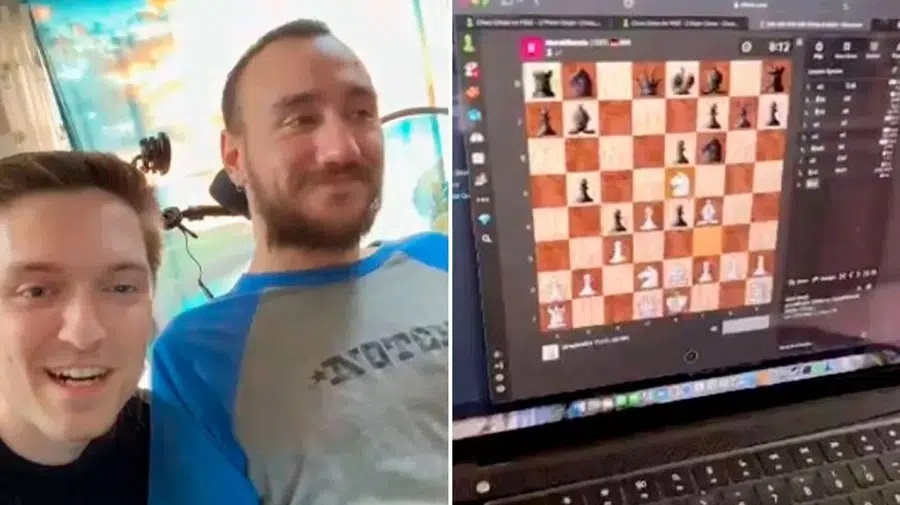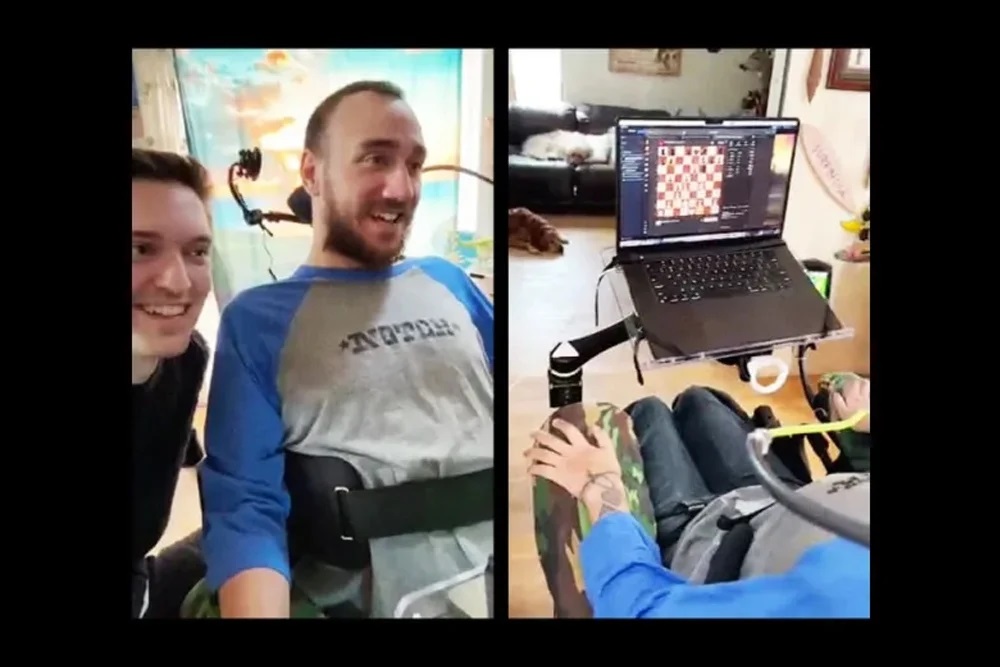Neuralink’s Breakthrough: First patient moves cursor on computer with brain implant

Neuralink, Elon Musk’s brain-chip company, has showcased its first patient successfully controlling a computer cursor with an implanted device.
In a nine-minute livestream on X (previously Twitter), Noland Arbaugh, who was paralyzed below the shoulders due to a diving accident, used the cursor to play chess online.
He received the chip implant from Neuralink in January, and during the presentation, he mentioned that the surgery was straightforward.
Mr. Arbaugh also shared his experience using the brain implant to play the video game Civilization VI, expressing joy at being able to do so again after eight hours straight.
However, he noted that the technology is not flawless, mentioning some encountered issues.
Neuralink’s device, roughly the size of a one-pound coin, is surgically placed into the skull, featuring microscopic wires capable of reading neuron activity and transmitting a wireless signal to a receiving unit.
The company has conducted trials with pigs and reported that monkeys could play a simplified version of the video game Pong using the device.
Neuralink received approval from the Food and Drug Administration (FDA) in May 2023 to test the chip on humans.
Neuralink is part of a growing trend of companies and academic institutions aiming to enhance and commercialize brain-computer interface (BCI) technology.

For instance, École Polytechnique Fédérale in Lausanne, Switzerland, enabled a paralyzed individual named Gert-Jan Oskam to walk by implanting electronic devices on his brain and spine, which wirelessly transmit thoughts to his legs and feet.
This groundbreaking achievement was published in the peer-reviewed journal Nature last year.
The human brain comprises around 86 billion neurons connected via synapses, producing electrical impulses that facilitate movement, sensation, and cognition.
Scientists have developed BCI devices to detect these signals, either using non-invasive caps or implanted wires.
The advancement in BCI technology has attracted substantial research funding and attention in recent years.
Source-BBC





